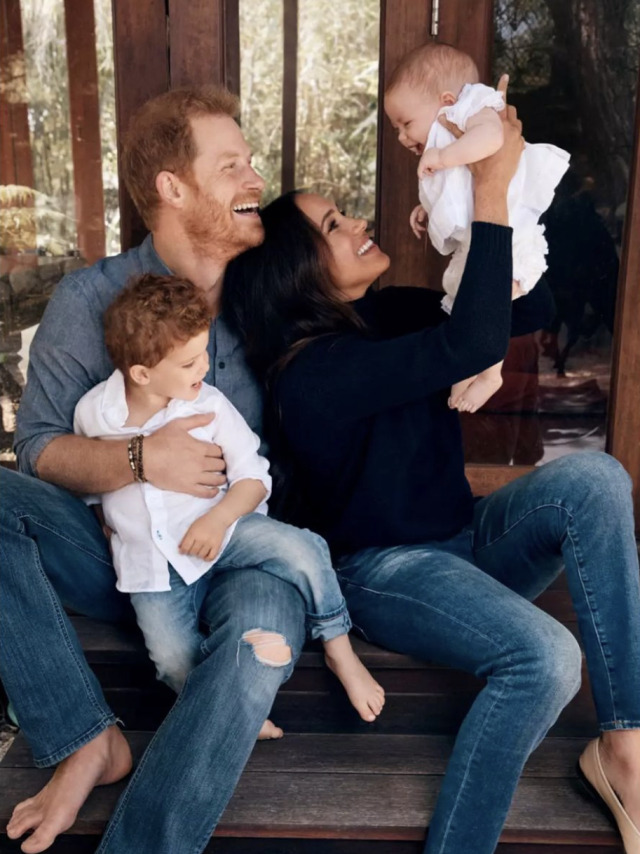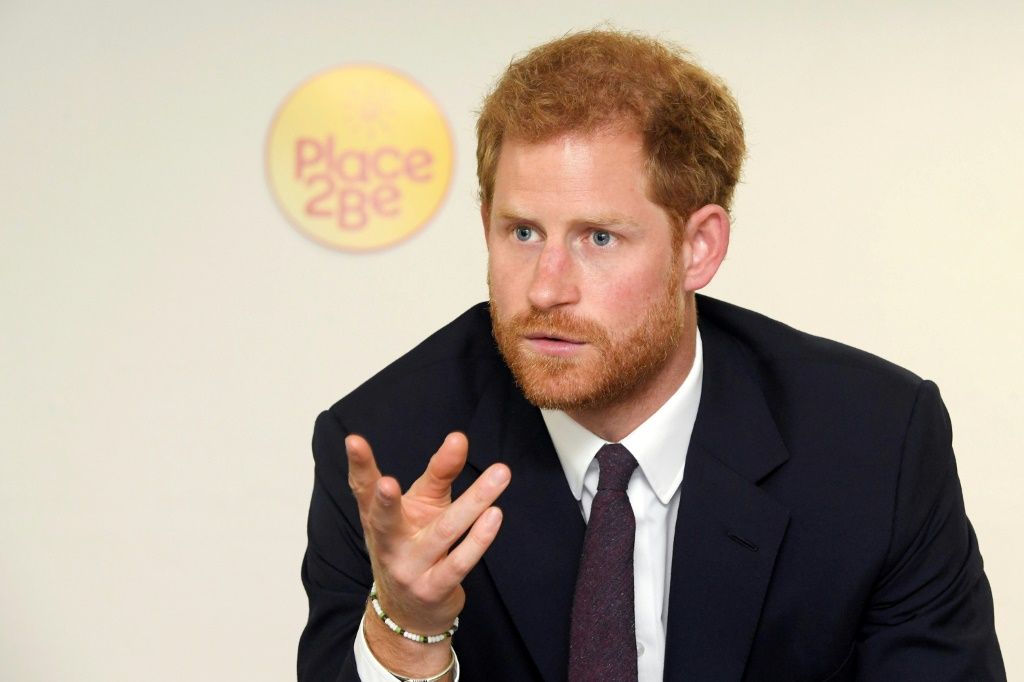Prince Harry’s biographer has recently addressed concerns regarding the Duke of Sussex’s emotional well-being, particularly focusing on his deep feelings of depression and the strain caused by his physical separation from his children, Archie and Lilibet.
In a candid discussion, Angela Levin, who has extensively covered Prince Harry’s life, highlighted the visible signs of Harry’s distress. According to Levin, “Harry is obviously depressed if you look at him. You can always judge by his face.” This observation stems from her experience interviewing him for her biography, where she could discern his moods based on his expressions. Currently, his unhappiness is palpable, signaling deeper issues at play.
Levin delved into Harry’s inner turmoil, suggesting that he harbors regrets about the decisions that led to his estrangement from the royal family. Harry has expressed a desire to reconcile with his family, a sentiment that underscores his emotional struggle. Levin mentioned, “He says he wants to come and make friends with the royal family again and that he regrets what he put into…”

The biographer also touched upon the complexities of Harry’s life in the United States. Despite the allure of a new beginning, Harry faces significant challenges, particularly with maintaining a relationship with his children. Levin noted the difficulties Meghan Markle and Harry face regarding public exposure of their children. She suggested that the couple might be overly protective, possibly out of fear for their children’s safety. This has led to a situation where Archie and Lilibet are rarely seen in public, further complicating Harry’s feelings of isolation and longing.
Levin empathized with the children, expressing concern over their limited interaction with both the royal family and Meghan’s side of the family. She believes that grandparents play a crucial role in a child’s life, a role currently missing for Archie and Lilibet. This separation extends to their cousins, who would have provided companionship and a sense of familial normalcy.
The discussion also touched on the broader implications of this isolation. Levin pointed out that as the children grow, they might face challenges related to their royal titles, especially in social settings like school, where their peers might mock or misunderstand their unique positions. This potential for social difficulty adds another layer of concern for Harry, who undoubtedly wants the best for his children.

Levin’s insights paint a picture of a man caught between two worlds, struggling to find a balance that allows him to fulfill his roles as a father and a son. Harry’s public persona, often scrutinized, hides the deep personal battles he fights daily. His biographer’s revelations offer a rare glimpse into the private agonies of a prince who, despite his royal lineage, faces the very human challenges of regret, longing, and the pursuit of happiness.
In conclusion, Prince Harry’s journey remains fraught with emotional turbulence. As he navigates his complex reality, the support and understanding of both his immediate and extended family could play a pivotal role in alleviating his distress and forging a path toward reconciliation and inner peace.

News
Meghan Markle demands ‘fair play’ as new South Park episode trashes her Netflix cooking show Calls it ‘Duchess Can’t Cook’
A New Scathing South Park Parody Takes Aim at Meghan Markle’s Cooking Show. The notoriously irreverent and satirical animated series South Park has set its sights on the Duchess of Sussex, Meghan Markle, with a biting new parody episode titled…
Meghan Markle’s mother demands benefits: “My daughter has worked hard to give birth to children for the royal family and I am asking King Charles to legally divide the inheritance among the grandchildren.”
Meghan Markle’s Mother Demands Benefits: “My Daughter Has Worked Hard to Give Birth to Children for the Royal Family, and I Am Asking King Charles to Legally Divide the Inheritance Among the Grandchildren” In recent developments, Doria Ragland, Meghan Markle’s…
Meghan Markle’s mother is extremely upset and confides in RF’s “WRONG BEHAVIOR” towards her daughter, which she claims caused her granddaughter to become homeless
Meghan Markle’s mother, Doria Ragland, discusses her daughter’s suicidal thoughts in a new interview. Ragland says that she was “heartbroken” to learn of her daughter’s struggles and that she and Prince Harry were unable to protect her from the media…
Amid doubts about Meghan Markle’s ability to have children. A leaked document shows Meghan Markle panicking because Lilibet’s biological mother wants her daughter back
Meghan Markle in Panic: Shocking Footage Allegedly Shows Lilibet’s Biological Mother Reclaiming Her Daughter A woman named Maria Gonzalez, who used to work as the housekeeper at the Montecito estate of our daring Duke and Duchess of Deceit, has stepped…
PRINCE HARRY COLLAPSES: Eyes bloodshot after seeing pictures of Meghan Markle and Andrew as rumored
It was supposed to be a quiet, romantic evening between Prince Harry and his wife Meghan Markle. However, when Harry decided to borrow Meg… It was supposed to be a quiet, romantic evening between Prince Harry and his wife Meghan…
The ‘FATAL’ move that left Meghan Markle panicking: Billy Joel reveals firsthand the ‘Hollywood Affair’ scandal
Billy Joel, the renowned singer, made waves this past week with unexpectedly candid remarks about Meghan Markle during a live concert. Here’s a closer look at what transpired and the ensuing Hollywood drama. The setting was Madison Square Garden in…
End of content
No more pages to load






